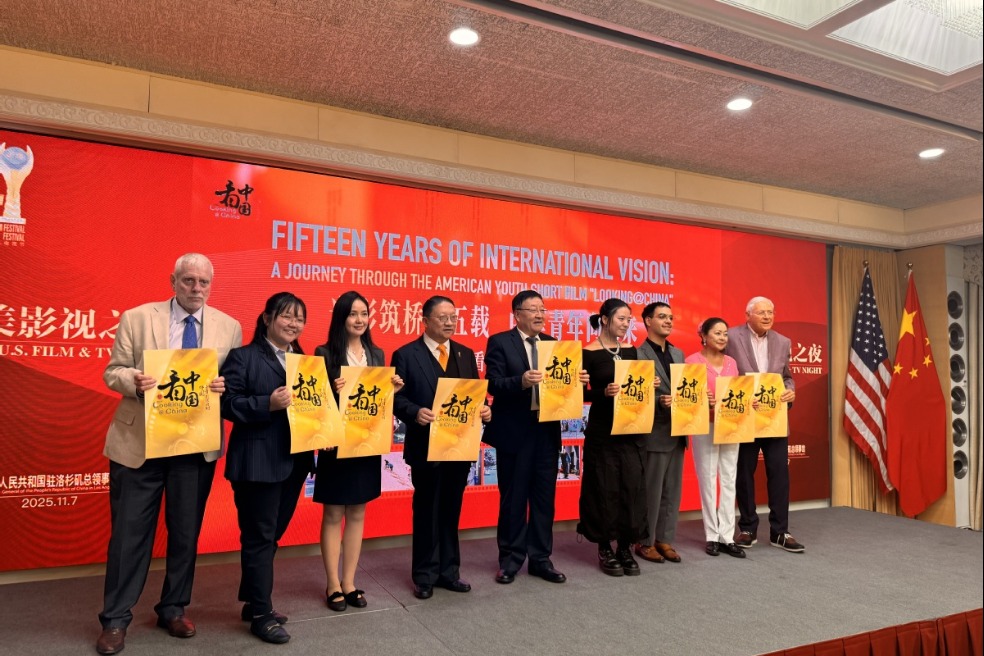China, Japan can promote environmental cooperation


Leaders of China and Japan met at the G20 Osaka summit in June and confirmed Japan-China relations were fully back on track. In October last year, when Japanese Prime Minister Shinzo Abe visited China, he proposed to the Chinese leaders his strong desire to "turn competition into coordination" with China.
In this sense, joint efforts involving the Belt and Road Initiative routes will provide a new platform for the two countries to deepen mutually beneficial cooperation.
There are two things emblematic of the substantial cooperation along the BRI routes. One is the Asian Infrastructure Investment Bank, and the other is third-party market cooperation. Japan has not joined the AIIB in view of the United States' position and other factors, but has reached consensus on carrying out third-party market cooperation under the framework of the BRI with China.
In December 2017, the Japanese government proposed guidelines for its enterprises on nongovernmental cooperation between Japan and China in the third-party market through financial support in areas such as energy conservation, industrial upgrading and logistics.
In May last year, Premier Li Keqiang visited Japan, and the two governments signed a memorandum of understanding on cooperation between China and Japan in nongovernmental areas in third-party markets and agreed to set up a council for this purpose.
In October last year, Abe visited China, and the two sides jointly held the first China-Japan Third-Party Market Cooperation Forum and signed 52 memorandums of understanding to tap into the huge space of cooperation and profits.
The BRI partner countries are faced with the challenges of eliminating poverty, dealing with public hazards and protecting the environment.
My research center has analyzed the potential of energy conservation and environmental improvement in them and has some findings.
If both the energy consumption per unit of gross domestic product and carbon dioxide emissions per unit of GDP in Southeast Asia, South Asia, Central Asia, the Middle East and countries of the former Soviet Union, other than Central and Eastern Europe, reach the current annual levels of those of Japan, then the annual energy consumption and carbon dioxide emissions can be reduced by about 60 to 70 percent. In particular, India and Russia have very low energy efficiency, with the maximum potential to reduce emissions at around 75 percent.
Japan has the technological edge, while China boasts a market advantage. The two countries are complementary to each other in terms of capital, technology, labor and engineering, procurement and construction.
China is rapidly catching up on many technologies, and even surpassing Japan in some fields. Their cooperation will not only benefit them, but also the third-party countries, a step forward toward the United Nations' Sustainable Development Goals.
At present, boosting third-party market cooperation remains a common challenge for China and Japan. So two things are suggested.
First, political mutual trust is a must.
Chinese philosopher Confucius said, "If those who are near get pleased, those who are far away will be attracted to come."
China-Japan relations have returned to the normal track through the joint efforts of the two sides. A stable relationship not to be influenced by any third party is in the long-term interests of both countries and the rest of the world.
Second, a mutually complementary and win-win system for third-party market cooperation is needed.
The BRI partner countries are faced with three major problems of developing economies, overcoming public hazards and protecting the planet.
According to the World Bank, Russia's average power generation-efficiency in 2016 was 27.5 percent, compared with Japan's 47.7 percent. If China and Japan can work hand in hand to improve it in Russia, all three countries will gain a lot of economic and social benefits.
An approach of market principles plus benefit-sharing plus risk-sharing has been put forth. This means the selection and promotion of projects, apart from policy support, should consider the needs of third parties and market principles with a risk-sharing mechanism. Meanwhile, technology transfer or development costs are borne by all three parties.
At the same time, economic benefits are distributed according to market principles, and environmental benefits are distributed according to each party's contribution.
International and inter-regional cooperation is crucial, given the limitations of self-help efforts by developing countries and the scope and extent of global environmental issues.
So based on the status quo of developing countries along the BRI routes, China and Japan can promote effective environmental cooperation through third-party market cooperation, such as technology development and transfer, and support for the development of environmentally friendly industries in developing countries.
The author is a professor at the College of Policy Science at Ritsumeikan University and secretary-general of the Belt and Road Initiative Japan Research Center. The views do not necessarily reflect those of China Daily.
































